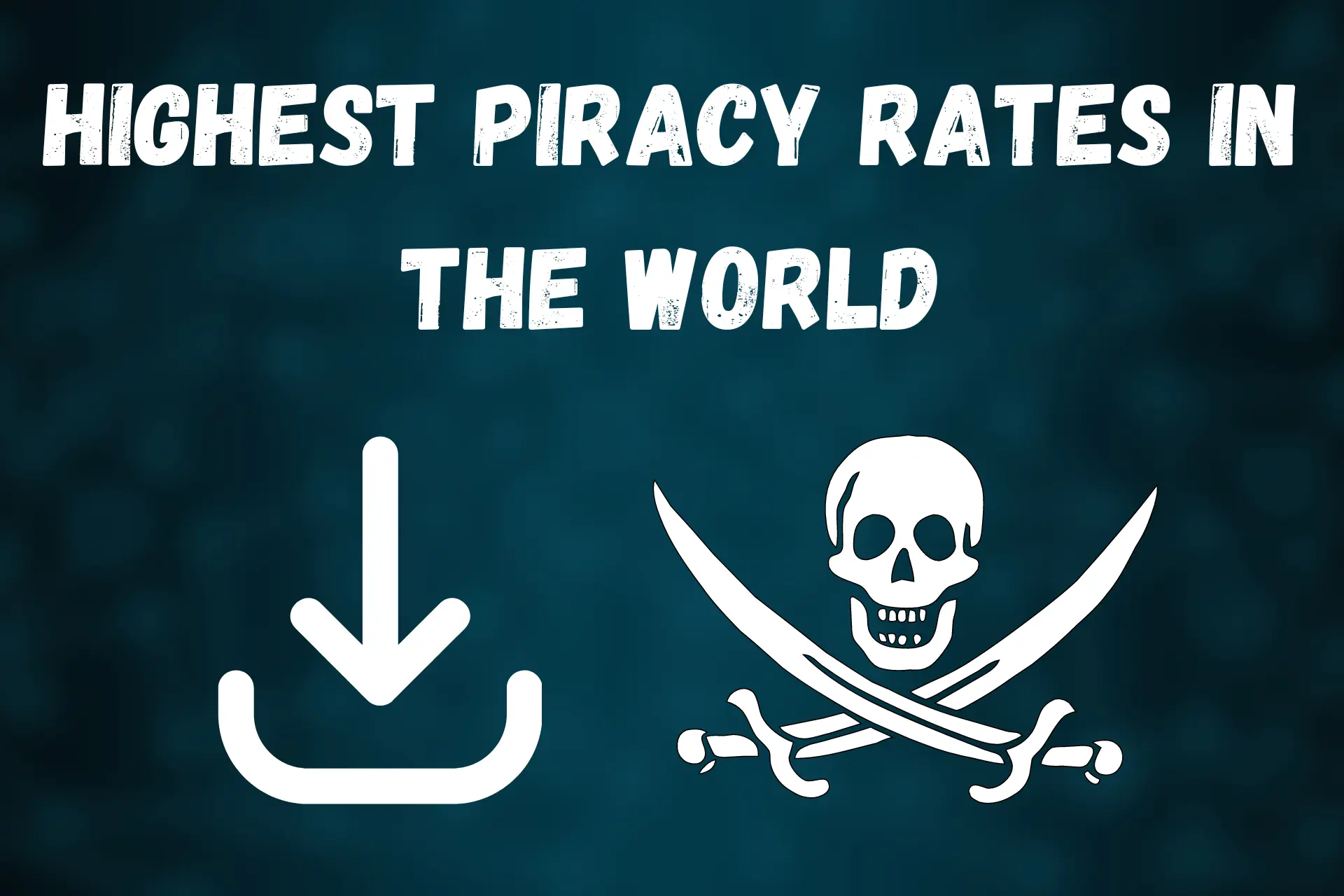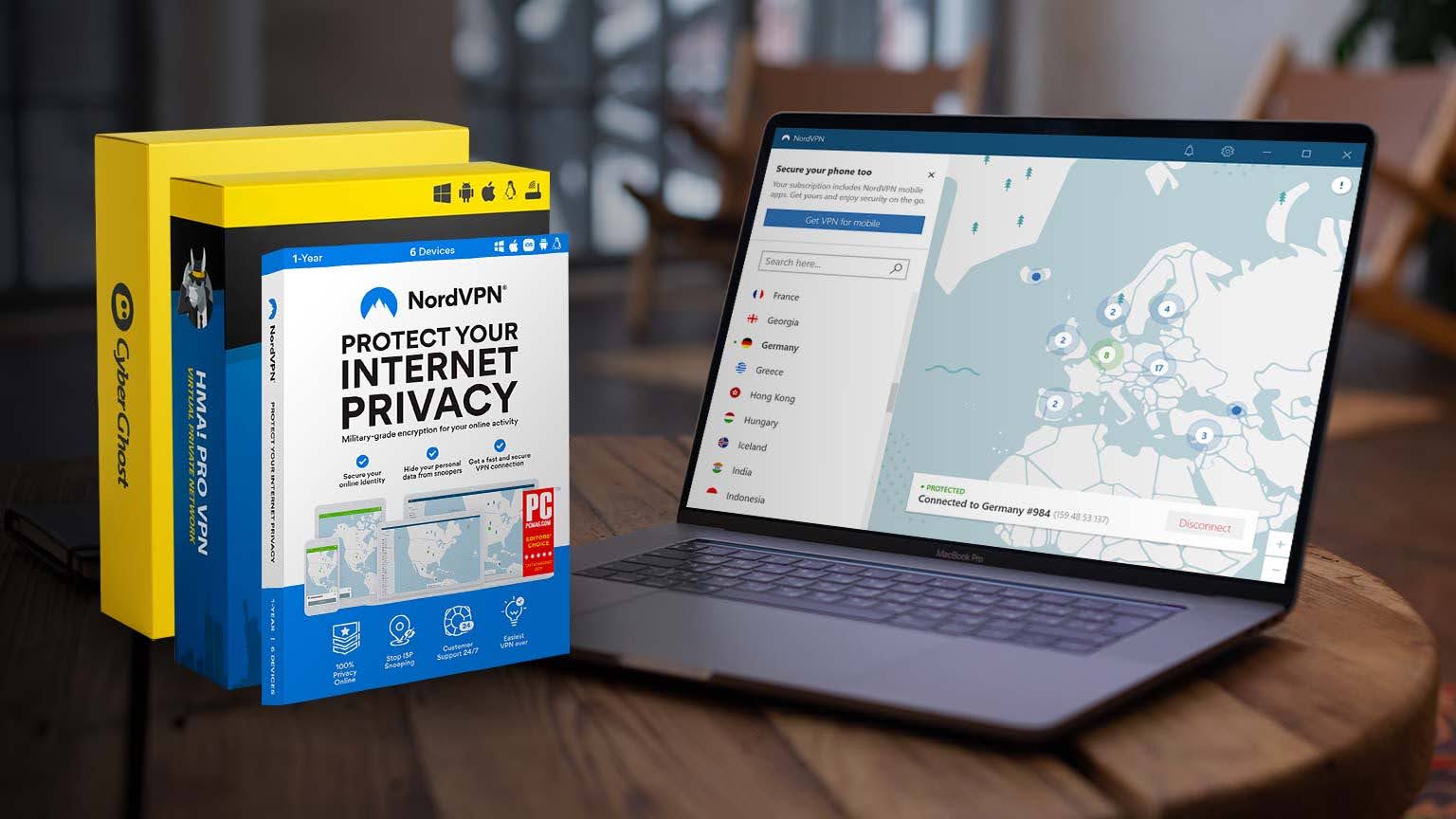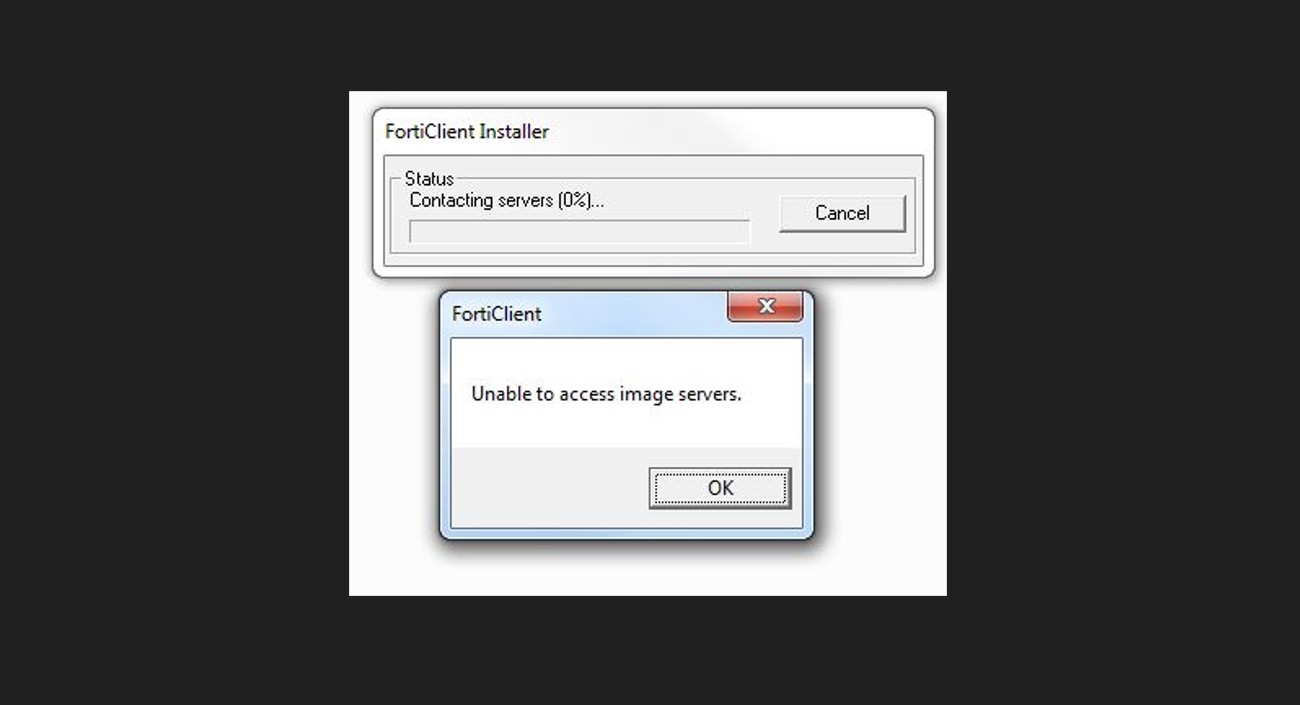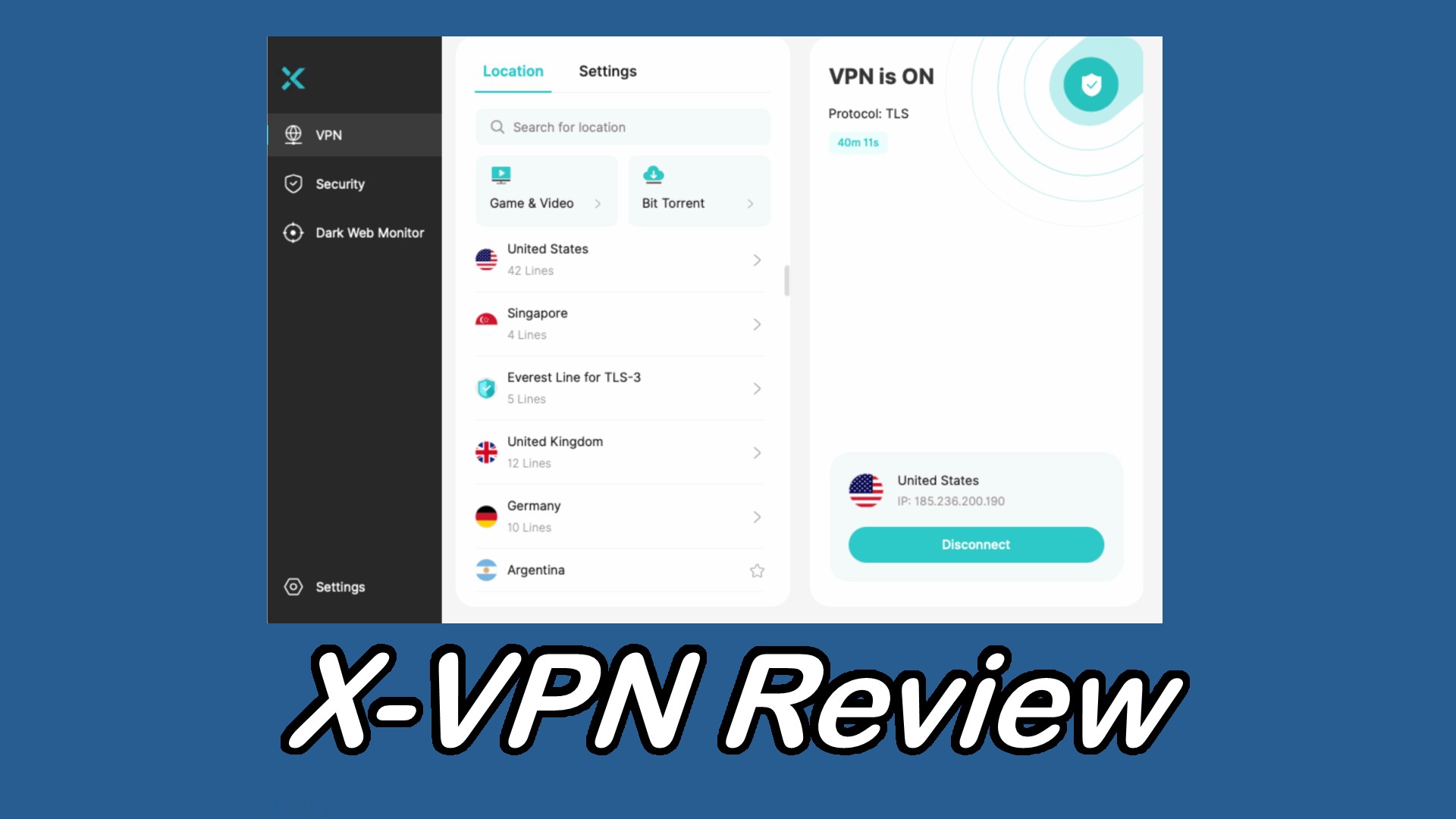Highest Piracy Rates in The World [Full Breakdown]

Piracy is the act of illegally distributing copyrighted material. It’s one of the major issues with digital media in the modern world.
This phenomenon, however, isn’t exclusive to the entertainment industry. It also affects the economy and intellectual property rights.
Although the majority of governments and content creators try to fight it, this unlawful activity continues to be an issue for many countries.
If you were wondering where illegal downloading and streaming cause the most problems, you’ve come to the right place. In this post, we’ll take a better look at the highest piracy rates in the world.
Piracy rates by country
Below, you’ll see a map displaying piracy rates across the world. We used the latest and most accurate data available for each country:
Made withVisme
As you can see Russia, Georgia, and Zimbabwe top the list, each with a piracy rate of 91%.
However, some countries manage to stay at its bottom and seem to have a firmer grip on this global issue:
The Nordics
The Nordics have some of the lowest piracy rates in the world. Although these numbers are significantly lower than in other parts of the world, illegal distribution of content is still a problem in the region.
With approximately 3.4 million pirates in the Nordic countries, the number of those making this type of media available online is increasing.
The changes in piracy rates in the last few years demonstrate this the best:
- Sweden – 20% (was 17% in 2021)
- Norway – 18% (was 14% in 2021)
- Finland and Denmark – 13% (both were at 12% in 2021)
These countries are hoping the numbers will move in a different direction, as they are trying to put a stop to illegal activities online. The authorities are already drawing attention to free streaming websites and IPTV.
Countries with the highest piracy rates in the world
As you can imagine, some countries are experiencing more illegal content sharing than others. Next, we’ll highlight those in which piracy is most prevalent:
- Russia – 91%
- Georgia – 91%
- Zimbabwe – 91%
- China – 90%
- Iraq – 90%
Let’s take a look at why are these numbers so in these regions and whether the governments are taking action to reduce them:
Russia
Russia has always been known for having one of the highest piracy rates in the world. In 2018, the government introduced some new laws against illegal content distribution. Soon after, the activity started to see a decline.
However, after the situation between Russia and Ukraine escalated, the authorities decided to alter the laws again. They effectively legalized piracy as a response to the economic sanctions from the West.
The idea was to make it easier for people in Russia to obtain content that would otherwise be unavailable.
If the situation continues to move in the same direction, we can expect the country’s piracy rate to increase even further.
According to the most recent data available, this number currently stands at 91%.
Russia was one of the countries with the highest VPN adoption index in 2022. Internet piracy, along with other factors, has had an impact on this number going up.
Since not all VPN providers operate in the country, Russians have to stick to those available to them, such as NordVPN.
Georgia
Georgia isn’t only among the countries with the highest piracy rates in the world, it’s also the one with the biggest problem when it comes to illegal software distribution. According to reports, 93.5% of all programs Georgians use are illegal copies.
When it comes to the overall piracy rate, Georgia also has a significant problem, with the number standing at 91%.
Zimbabwe
Internet piracy is quite prevalent in Africa due to several reasons, including poverty and the unavailability of streaming services. People on the entire continent download and share copyrighted content online.
The country with the highest piracy rate in Africa is Zimbabwe where the number reaches 91%. It’s followed by Libya with 88% and Algeria with 83%.
Copyrighted content is best protected in South Africa where the piracy rate is 35%. This means that the country performs better than many of those in Europe.
China
China is another country that has a lot of trouble with digital copyright infringement. It’s reported that about 90% of people in the country access content illegally.
The government has been trying to combat piracy, shutting down 245 illegal websites in 2021. It also removed 618,300 web links, in an attempt to remove illegal copies from the internet.
According to some reports, the commercial value of unlicensed software people in China use stands at $6.9 billion.
Iraq
Given that the country was plagued with war in recent years, it’s no wonder that Iraq doesn’t view copyright infringement as a priority. However, this has led to the big majority of the population engaging in pirated content.
According to this year’s data, 90% of Iraqi people enjoy their media content for free. This includes everything from downloading movies to watching live sports.
With this number being extremely high, many people refer to the country as a piracy hotspot.
It’s also important to mention that about 37% of all Iraqis are under 14. This means that there are many young users who operate with pirated content in the country.
While the US troops were in Iraq, they quickly picked up the habit of downloading media illegally. This has led to some copyright notices arriving at military bases in the country.
High piracy rates’ impact
As you could’ve seen in the piracy rates by country section, this activity is extremely widespread in some parts of the world.
While illegal downloading and streaming may sometimes seem harmless, it has a huge impact on the entertainment industry and the economy as a whole.
Let’s look at some of the biggest problems it causes in the countries where the piracy rates are high:
Loss of revenue
This is the most obvious consequence of internet piracy.
When someone downloads or shares copyrighted material illegally, they’re essentially stealing from the creator. Just imagine how many more tickets movies would sell if they weren’t immediately available online in some countries.
This may not seem like a lot, but illegal downloading and streaming actually lead to billions of dollars in lost revenue every year.
For example, in 2020 alone, there were 137.2 billion visits to film and TV piracy websites. This number translates to a minimum of $29.2 billion in lost revenue for the US economy.
Job losses
The entertainment industry losing money due to internet piracy causes even more problems. Lost revenue often leads to companies having to cut their investments and lay off workers.
According to various sources, illegal downloading and sharing of video material results in between 230,000 and 560,000 job losses in the US.
Members of the International Actors’ Federation have even asked consumers to be more aware of the impact their illegal online activity has. They even said that there may eventually be nothing to consume if the content doesn’t make enough money.
Job losses caused by internet piracy are one of the key reasons why some governments are imposing tighter laws on intellectual property.
Problems in creative industries
Artists not receiving enough compensation for their work also takes its toll on the creative industries as a whole.
Let’s say a musician doesn’t make enough on their latest album. This could potentially discourage them from pursuing their craft.
As a result, we may see less creativity and innovation in some fields. Similarly, companies may not have enough faith to invest in new technologies and products.
Many artists have already expressed their concerns. Gene Simmons of Kiss even went on to say that fans are destroying music because of the high piracy rates.
While the biggest names in the industry can still make money by touring, emerging artists suffer significantly when their music leaks online.
Security risks
Using legal streaming services to watch movies or listen to music is entirely safe. However, if you choose to do it illegally, you always have to watch out for viruses and malware.
Hackers often hide such software behind illegal digital copies. Sometimes, it’s enough to download something on your computer and infect it in a matter of seconds.
The worst part is that some cybercriminals use this technique to steal personal information. This can lead to both identity and money theft.
In addition, downloading pirated content through peer-to-peer networks also exposes your IP address. This is why many users turn to VPNs when downloading torrents from sites such as YTS.
Not to mention that internet piracy is a criminal offense in many countries. This means it’s not a good idea to download torrents without a VPN.
Impact on consumers
Lastly, illegal copies have a negative effect even on consumers. This type of content usually cannot match the quality you get with the real thing.
For example, some movies may arrive on torrents only in lower resolutions or with some scenes and subtitles missing.
In terms of music, the audio quality may not be on par with legal copies. Some musicians said this was the worst thing about internet piracy, as the consumers never get the real product.
Pirated content is also more difficult to obtain than legal copies. Sometimes, a single download can take hours.
If you turn to unreliable websites, you may not even get the content you believed you were downloading.
How to combat piracy?
Over the years, internet piracy has become a huge concern for both content creators and distributors. Naturally, governments had to attempt to put a stop to it.
Let’s take a better look at how they’re tackling the problem:
- Digital Rights Management (DRM)
Digital Rights Management or DRM is among the best tools for fighting illegal downloading and sharing. It’s a system that prevents users from copying and distributing digital content by encrypting and controlling it.
It’s important to mention that although DRM is highly effective against piracy, it’s not foolproof. Hackers can get around it and with some effort, they can still distribute illegal copies.
However, DRM serves as an instrument to make it more difficult for everyday users to access and share illegal content. - Collaborating with ISPs
Internet Service Providers (ISPs) can play a huge role in preventing internet piracy. They have an insight into what websites distribute that type of content and the users who download it.
In some countries, they’re obliged to report any illegal activity to the authorities. However, for this to work, clear rules need to be established.
For example, in 2011, the Recording Industry Association of America (RIAA) and some of the major US ISPs came up with the Copyright Alert System (CAS).
By the agreement, users would receive a series of alerts after engaging in piracy. However, CAS was discontinued in 2017 due to ineffectiveness and privacy concerns.
In 2019, the US asked some of its major ISPs to block any pirating websites. In France and South Korea, these companies have to follow a three-strikes rule. It involves issuing warnings and penalties to users who download and share illegal copies.
The biggest problem is that people can always change their virtual location and hide their IP address through a VPN while engaged in piracy. Top providers promise to hide your online activity from everyone, including your ISP. - Adjusting content prices
One of the main reasons why people turn to illegal copies is because they cannot afford legit content. By offering more reasonable prices, distributors can make pirated versions less appealing.
Ever since video and music streaming services such as Netflix and Spotify have emerged, there has been less demand for illegal content. Subscription-based models offer users access to large libraries for a relatively small fee. - Taking pirates to court
Sometimes, the only thing authorities can do is take legal action against distributors of illegal copies. They can try threatening lawsuits if the content isn’t taken down, or they can file an actual lawsuit.
Governments in some parts of the world are laying the groundwork for this. For example, Spanish authorities have recently made it easier for rights holders to file lawsuits against internet pirates.
Although this method is effective, it’s also time-consuming, and it can cost more than you’d expect. What’s more, pirates may be coming from a distant country, making it very difficult to take them to court. - Educating consumers
Earlier, we talked about how illegal content takes its toll on revenue in the industry and even causes people to lose jobs. We also mentioned how pirated copies are often impartial and lack in quality.
Not all users are aware of these issues, and people in the affected industries are trying to spread the word. If more people would be familiar with the case, they might choose to go with the legit content instead.
The government in the UK has taken this seriously. It launched its “Get It Right” campaign that promotes legal methods for accessing content online.
Summary
The emergence of streaming services has helped combat internet piracy, but illegal content distribution continues to be a huge problem in many parts of the world.
Above, you saw our list of countries with the highest piracy rates in the world and the effects these numbers can have.
Although there are multifaceted reasons for it, it’s clear that internet piracy can have some serious consequences for the economy.
With that said, we can expect governments and organizations across the world to keep coming up with new ways to combat and prevent this illegal activity.
Read our disclosure page to find out how can you help VPNCentral sustain the editorial team Read more






User forum
0 messages